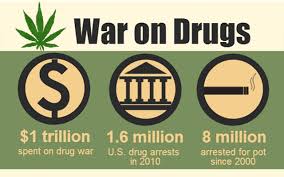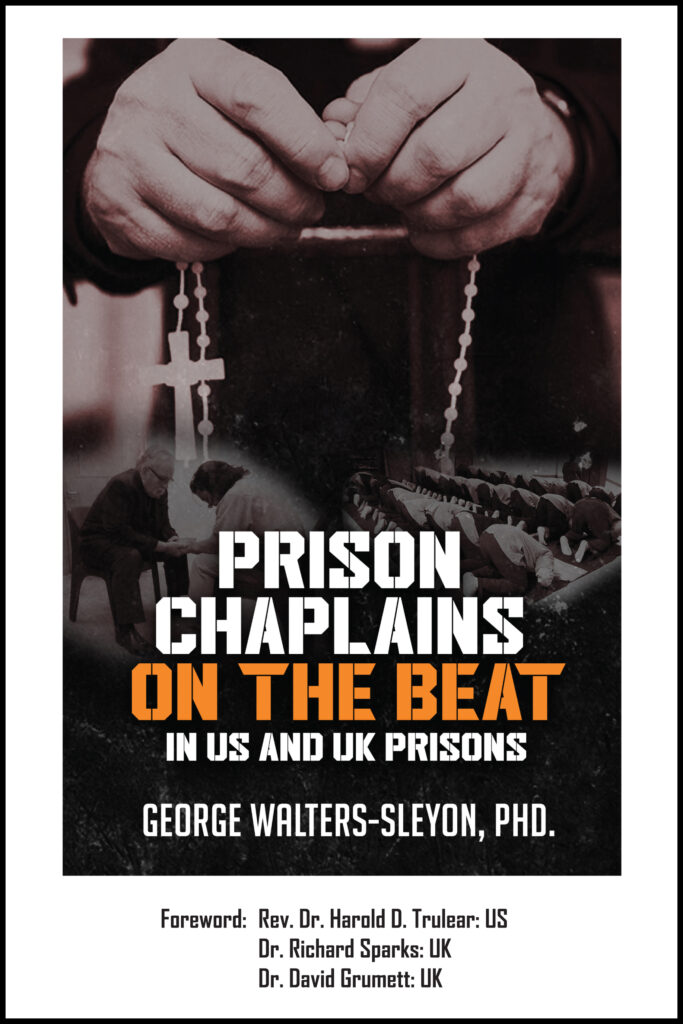Major Sentencing Reform in Massachusetts
 Massachusetts Has a Major Sentencing Bill to Reduce Mass Incarceration:
Massachusetts Has a Major Sentencing Bill to Reduce Mass Incarceration:
Sentencing Reform in Massachusetts
Massachusetts Communities Action Network (MCAN)
14 Cushing Ave, Dorchester, MA 02125 617) 470-2912 LewFinfer@gmail.com
For Immediate Release 3/23/18 Press Contact: Lew Finfer (617) 470-2912
–Major Criminal Justice Bill passes House-Senate Conference Committee
–Includes major reforms that will lessen mass incarceration, lessen racial disparities and lessen recidivism, AND increase safety and increase access to treatment instead of incarceration
–Community, Labor, Religious groups spent 4 years organizing for this
This bill was passed to in part address the context of a huge increase in incarceration over the past 40 years, huge recidivism rates indicating a failed system, huge racial disparities in the incarceration of African-Americans and Latinos, and too many people with substance use disorder being imprisoned instead of getting to drug treatment.
Key parts of the bill that will change this grim picture significantly over time:
- Repeals many Long Mandatory Minimum Sentences on Drug Charges that are part of the failed war on drugs and had led to long sentences disproportionately served by people of color.
Limit applicability of school zone law to cases involving guns or minors, Eliminate mandatory for second offense class B (move fentanyl to class A), Eliminate mandatory for first offense cocaine/PCP/meth, Eliminate mandatory for second offense class cocaine/PCP/meth, Eliminate mandatory for second offense class C, Eliminate mandatory for second offense
class D, Eliminate mandatory for sales of drug paraphernalia
Repealing a mandatory minimum sentence means sentencing is restored to judges so its based on the facts and circumstances of each individual case.
- CORI reform so that ex-prisoners have a chance to get jobs since so many employers won’t hire people with CORI criminal records. It lowers the current number of years that criminal records are sealed from employers from 10 years for felonies down to 7 years and from 5 years for misdemeanors down to 3 years. Enables ex-offenders to better access affordable housing and professional and occupational licenses.
- Punitive Fines and Fees on ex-prisoners are reduced or waived if shown to produce “substantial financial hardship. And no parole fees in the first year after release and no probation fee for 6 months after release
- Threshold for what a felony for theft was raised from $250.00 (the third lowest in the US) up to $1200…..theft can deserve punishment but not a felony with all its time in jail and length of CORI for a relatively lower amount of value…..still can mean prosecution and restitution as a misdemeanor at the new levels of below $1200.
- Diversion to Drug Treatment instead of incarceration for more people with substance use disorders. Requires District Attorneys to create pre-arraignment diversion programs for “individuals with substance abuse disorders and mental illness, veterans and active armed service members”. Expands diversion programs to the Juvenile Court and removes age restrictions on such programs in District Courts.
- Juvenile Justice Reform—
- Disappointing that they did not “Raise the Age” of coverage of the juvenile justice system to cover 18 year olds so they’d get more services and not be in adult prisons. Set up a Commission to study this further.
- But, did authorize expungement of certain juvenile and criminal records for young adults 18-21 so they are not saddled with CORI’s that would make it hard to get a job.
- Requiring Implicit Bias training AND Deescalation training for police which can decrease racial profiling AND decrease numbers of police shootings.
- Compassionate Medical Release is allowed under some circumstances to free long term prisoners with serious illnesses out of compassion and to save on prison costs.
- Disappointing that they Did NOT include the Justice Reinvestment provision that was in the Senate passed bill that a portion of savings of the bill go into job training and reentry programs. Both of these are woefully underfunded in the state budget so much more is needed in this area.
- Sending a single parent to prison when they were the primary caretaker can be considered by judges in sentencing so more families are not broken up.
- Solitary Confinement—a number of reforms are made to increase accountability for this practice that can lead to trauma.
- Restorative Justice programs increased and can be pre-arraignment to help both victims and offenders.
- Bail Reform to further move toward those with charges not sitting in jail for months and losing their jobs because they can’t afford bail.
- New mandatory minimums on fentanyl and carfentanil in response to the opioid crisis were passed. It will be important the DA’s use them to increase safety and not to over-penalize those with substance abuse disorders who do not know what’s in drugs they have.
We thank Speaker Robert DeLeo, Senate President Harriette Chandler and the members of the House-Senate Conference Committee for their work on passage of this bill; House Judiciary Chair Rep. Claire Cronin, House Majority Leader Rep. Ron Mariano, Rep. Sheila Harrington, Senate Judiciary Chair Senator Will Brownsberger, Senate Majority Leader Senator Cynthia Creem, Senate Minority Leader Senator Bruce Tarr. And we thank Representative Jeff Sanchez, House Ways and Means Chair and Senator Karen Spilka, Senate Ways and Means Chair for their work on the bill.
We thank legislators who were lead sponsors of key bills, parts of which are in this final bill:
Senators Sonia Chang-Diaz, Cynthia Creem, Michael Barrett, Karen Spilka, Ken Donnelly, Will Brownsberger, Pat Jehlen Representatives Mary Keefe, Evandro Carvalho, Liz Malia, Chynah Tyler, Kay Khan, David Rogers
**Community, Labor, Religious groups worked hard since 2014 to organize for the passage of this criminal justice reform bill. This is some of what we did:
—We as the Jobs NOT Jails Coalition of community, labor, and religious groups drafted legislation in 2014 that was filed in 2015 and again in 2017…..the Justice Reinvestment Act (Rep. Mary Keefe and Senator Sonia Chang-Diaz as lead sponsor) and stand alone bills on Repeal of Long Mandatory Minimums on drug charges (Rep. Carvalho and Senator Creem), CORI Reform to lessen barriers to jobs for ex-prisoners, Reform of punitive Fines and Fees on Ex-Prisoners, Justice Reinvestment funding for Reentry and Job Training, Raising the Threshold for a Felony for Theft from $250 to $1500, Compassionate Release.
—We worked to get over 65 legislators to co-sponsor the Justice Reinvestment Act and many co-sponsors for the stand alone bills on individual components of that bill and we thank these legislators.
—We organized 500 people three different times to fill Gardner Auditorium on hearings on the legislation in 2015 and 2017.
–We had meetings of hundreds of people with legislators in Lynn and Springfield and smaller meetings with legislators in their offices and in our communities. We organized people to make calls to legislators
and to write them.
–We challenged the Governor, Speaker, Senate President to not stop at the limited Council on State Governments bill but to pass a comprehensive criminal justice reform bill, including demonstrating at a meeting of the CSG Committee of state officials, and they did to their credit.
–We organized to ask Sheriffs and Attorney General Healy to speak out on this issue and AG Healey, Sheriff Tompkins, Sheriff Koutoujian, and Sheriff Bellotti did to their credit.
—We worked with legislators who were allies and supporters and with legislative caucuses; the Progressive Caucus, the Black-Latino Caucus, the Harm Reduction Caucus, the Women’s Caucus and we thank these legislators
–We convened allies to work together in the Working Groups for Criminal Justice Reform on these above issues and also on Juvenile Justice Reform—Raising the Age of Juvenile Court jurisdiction from 18 to 19, Solitary Confinement Reform, Bail Reform, Restorative Justice Reform, Caregivers reform, Diversion of those with substance use disorder to drug treatment.
**The Context of Incarceration and Its Impact on our Communities:
Governor Baker points to Massachusetts having one of the lower incarceration rates for states, but we feel we have a BIG problem because:
- Mass Incarceration up 400% since 1975 even though crime is down 26%
- Racial disparities: For states, MA has the highest state level of imprisonment of Latinos relative to whites and 13th highest for African-Americans. Chief Justice Gants wrote, “in 2013, 44% of all persons convicted of drug offenses were persons of color, but 75% of all persons convicted of drug offenses with mandatory minimum sentences were persons of color.”
- Massive Recidivism: Within 3 years release from state DOC prison, over 1/2 of DOC releases and 2/3 House Of Correction releases had new criminal justice involvement. This hurts the prisoner, their family, the community, new victims, and taxpayers.
The Opioid Crisis and Substance Use Disorder is a public health problem but we too much deal with it by imprisonment:. Opioid addiction is a public health problem and we’re trying to treat it that way which is good. But haven’t we been treating all the other drug offenses like for heroin, cocaine, and marijuana as criminal violations that lead to prison when 70% of those sent to prison have addiction problems? Diversion to Treatment: Can we divert non-violent drug offenders who have an addiction problem to treatment? Some states do this but in our state, the DA decides who does or doesn’t get to go to a Drug Court and get treatment, judges don’t get to decide who does.
*Mandatory Minimum Sentences: We still have these long mandatory minimum sentences for non-violent drug charges. I was told of a case of a man when he was 20 served a 10 years mandatory minimum for possession of 4 1/2 ounces of cocaine. He was a first time offender. That sentence is longer than some people get for manslaughter. How is that fair? Chief Justice Gants said people of color get disproportionately more sentenced to mandatory minimums.
CORI’s are still a real burden to ex-prisoners getting jobs. Employers can see CORI’s for 10 years for people with felonies and 5 years for people with misdemeanors.
**There are many allies who stepped up on this campaign and we want to name some of the many and thank them very much: Jobs NOT Jails Coalition, Essex County Community Organization, Pioneer Valley Project, I Have A Future, ACLU Massachusetts, MassINC, Citizens for Juvenile Justice, Progressive MA, Greater Boston Interfaith Organization, EPOCA, Coalition for Social Justice, Neighbor to Neighbor, MA Organization for Addiction Recovery/MOAR, ROCA, United Teen Equality Center/UTEC, Prisoners Legal Services, League of Women Voters, MA Bail Fund, Committee for Public Counsel, Massachusetts Catholic Conference, Unitarian Universalist Mass Action, 1199 SEIU, SEIU 509, SEIU 888, Jewish Community Relations Council, Families for Justice as Healing, Louis D. Brown Peace Institute, NAACP, National Association of Social Workers, Gavin Foundation, Recovery Homes Collaborative, Greater Boston Legal Services, MA Law Reform Institute, Coalition for Effective Public Safety, Learn to Cope, All Souls Church/Braintree, Fr. Bill’s Place, RSVP Restorative Justice, Episcopal Diocese of Western MA, Modern Assistance, Sober Mommies, Christ Episcopal Church/Quincy, Faith Lutheran Church/Quincy, First Parish Church Arlington, League of Women Voters MA, CASA/Winthrop.






